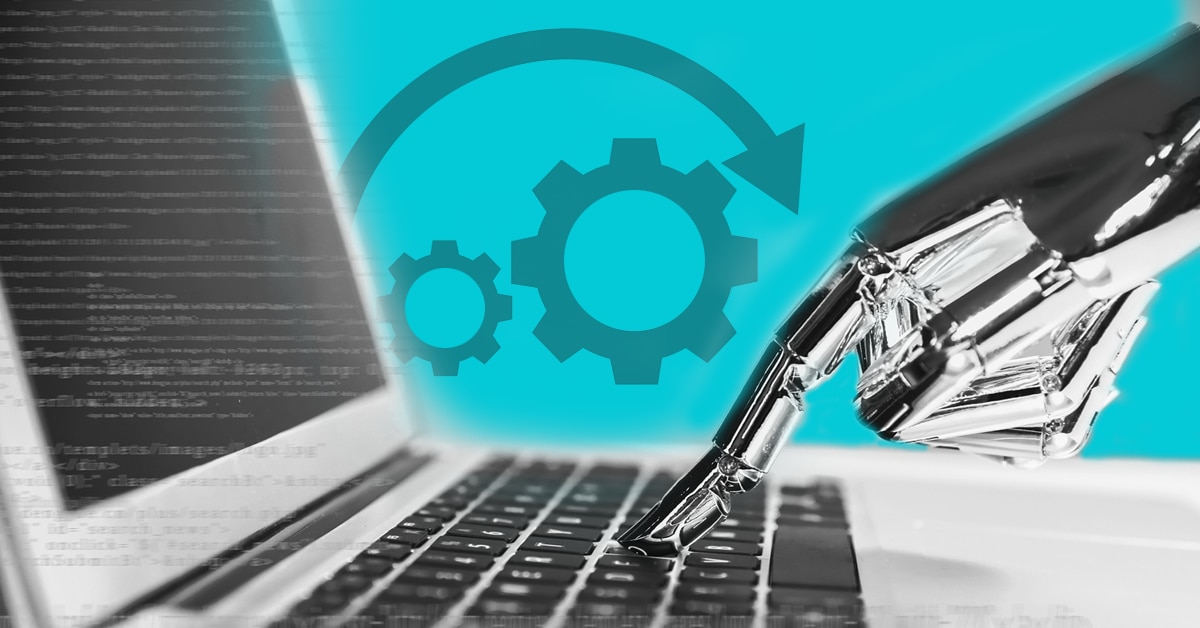Nobody could have predicted 2020, and 2021 was another year to be reckoned with. With 2022 just around the corner, the SolarWinds Head Geeks share their thoughts on what the new year has in store.
While artificial intelligence and machine learning have been hot topics for tech pros for years, Head Geek Sascha Giese sees 2022 as the year businesses start to use these services more prominently. Kevin Kline and Thomas LaRock predict a rise in Chief Data Officers and the use of DBaaS and open-source databases in organizations. Liz Beavers considers the implications of the new normal of hybrid work environments and how this will affect tech pros. And finally, Chrystal Taylor looks to non-technical skills as a stepping stone for career advancement.
Read on for a deeper dive into these topics from each of the Head Geeks.
 Sascha Giese: The Rise of AI/ML Services
Sascha Giese: The Rise of AI/ML Services
The explosion in data available to a company has made the use of artificial intelligence (AI) and machine learning (ML) a critical competitive advantage, but the talent and resources required to build solutions in-house are still prohibitive. A machine is faster than a human, or even a group of humans, which means shifting to AI/ML services also allows for cost savings. Yes, purchasing or subscribing to an AI and integrating it doesn’t come cheap, but it’s still more efficient than a team of 20 data analysts. In 2022, we’ll start to see artificial intelligence and machine learning feature more prominently in organizations’ IT environments through the adoption of off-the-shelf AI/ML services. As businesses look to strengthen their security postures in response to the evolving threat landscape, for example, many security tools leverage AI/ML to perform tasks. Meanwhile, offerings from cloud service providers, like Amazon SageMaker or Google TensorFlow, will similarly see widespread growth by reducing the barrier to adoption and implementation for tech pros. We may also see companies that have become proficient at building AI algorithms start to monetize them through licensing, data streaming ingress, or even by renting those algorithms out to other businesses.
 Kevin Kline: More Chief Data Officers, Bigger Emphasis on Data and Analytics Governance Initiatives
Kevin Kline: More Chief Data Officers, Bigger Emphasis on Data and Analytics Governance Initiatives
A growing number of companies outside of the Fortune 500 will hire Chief Data Officers (CDO) who are charged with implementing one or more data governance programs in the coming year. We’ll also see organizations without an official CDO moving to implement specific subsets of the data governance portfolio, such as corporate-wide data dictionaries. The CDO position, with its emphasis on protecting and promoting the value of corporate data, will see rapid growth in companies of medium size, such as those listed on the Russel 2000 index. This in turn will further emphasize data and analytics (D&A) governance for small and medium businesses, which will be triggered by two widespread issues. First, the continuation of work from home (WFH) and hybrid working arrangements has acted as a big motivator for companies to build stronger data governance programs as small- and medium-sized corporations continue to allow access to their on-premises data for the first time from new and unsecured locations, such as worker’s homes. The second reason is global data privacy legislation, such as the EU’s GDPR and California’s CCPA, apply to organizations of all sizes doing business in those legal jurisdictions. These new laws have very potent punishments for violators, prompting many firms to make data governance a new priority.
 Thomas LaRock: DBaaS and Open-Source Database Adoption Rises
Thomas LaRock: DBaaS and Open-Source Database Adoption Rises
According to the
SolarWinds Query Report 2021: Database Priorities and Pitfalls, 33% of tech pro respondents ranked Cloud DBaaS as the #1 priority database platform to adopt over the next three years. The report also found a growing number of organizations are adopting or considering the adoption of NoSQL and open-source databases. While the cost benefits and preference by developers are some of the reasons why organizations are looking to open-source databases, the functionalities in these platforms don’t differ much from those of commercial databases. As organizations increasingly deploy more cloud-native and hybrid applications and databases, database professionals will need to build up their knowledge and skillsets for managing multiple databases in diverse environments. Likewise, they’ll need to understand and communicate to leadership what databases would make the most sense for their organization.
 Liz Beavers: The Changing Nature of Hybrid Work
Liz Beavers: The Changing Nature of Hybrid Work
While businesses continue to navigate the new normal, tech pros will be tasked with maintaining and supporting hybrid workplaces by implementing new tools and technologies. However, to keep up with the pace of change, they’ll also need to continuously re-evaluate existing tools and processes. Tech pros should take a step back and review the goal(s) of refining processes or implementing a new tool. Are you aiming to enhance visibility or eliminate silos? Improve communication, reduce bottlenecks, or enhance the user experience? When introducing changes, consider the holistic impact for both those responsible for implementing these updates along with the end users. As you evaluate new tools or business processes, focus on the value these changes will bring to the organization.
 Chrystal Taylor: Greater Focus on Non-Technical Skills for Career Enhancement
Chrystal Taylor: Greater Focus on Non-Technical Skills for Career Enhancement
The
SolarWinds 2021 IT Pro Day Survey found respondents are increasingly recognizing that a balance between non-technical skills learned in daily life and technical skills/professional certifications are key to career advancement and new opportunities in the future. In turn, these newfound non-technical skills will play a large role in enabling tech pros to achieve broader responsibilities such as project management and becoming part of the decision-making process, which 34% of respondents say is their biggest opportunity at work in the next year. In addition, these skills will help tech pros foster improvements in relationships with management teams, customers, and teammates. Relationships are the building blocks for success, and these non-technical skills are the keys to building better relationships.
From AI and ML to data governance, open-source databases and DBaaS, hybrid work environments, and an emphasis on non-technical skills, 2022 looks to be a year of opportunity and growth for tech pros.
 Sascha Giese: The Rise of AI/ML Services
The explosion in data available to a company has made the use of artificial intelligence (AI) and machine learning (ML) a critical competitive advantage, but the talent and resources required to build solutions in-house are still prohibitive. A machine is faster than a human, or even a group of humans, which means shifting to AI/ML services also allows for cost savings. Yes, purchasing or subscribing to an AI and integrating it doesn’t come cheap, but it’s still more efficient than a team of 20 data analysts. In 2022, we’ll start to see artificial intelligence and machine learning feature more prominently in organizations’ IT environments through the adoption of off-the-shelf AI/ML services. As businesses look to strengthen their security postures in response to the evolving threat landscape, for example, many security tools leverage AI/ML to perform tasks. Meanwhile, offerings from cloud service providers, like Amazon SageMaker or Google TensorFlow, will similarly see widespread growth by reducing the barrier to adoption and implementation for tech pros. We may also see companies that have become proficient at building AI algorithms start to monetize them through licensing, data streaming ingress, or even by renting those algorithms out to other businesses.
Sascha Giese: The Rise of AI/ML Services
The explosion in data available to a company has made the use of artificial intelligence (AI) and machine learning (ML) a critical competitive advantage, but the talent and resources required to build solutions in-house are still prohibitive. A machine is faster than a human, or even a group of humans, which means shifting to AI/ML services also allows for cost savings. Yes, purchasing or subscribing to an AI and integrating it doesn’t come cheap, but it’s still more efficient than a team of 20 data analysts. In 2022, we’ll start to see artificial intelligence and machine learning feature more prominently in organizations’ IT environments through the adoption of off-the-shelf AI/ML services. As businesses look to strengthen their security postures in response to the evolving threat landscape, for example, many security tools leverage AI/ML to perform tasks. Meanwhile, offerings from cloud service providers, like Amazon SageMaker or Google TensorFlow, will similarly see widespread growth by reducing the barrier to adoption and implementation for tech pros. We may also see companies that have become proficient at building AI algorithms start to monetize them through licensing, data streaming ingress, or even by renting those algorithms out to other businesses.
 Kevin Kline: More Chief Data Officers, Bigger Emphasis on Data and Analytics Governance Initiatives
A growing number of companies outside of the Fortune 500 will hire Chief Data Officers (CDO) who are charged with implementing one or more data governance programs in the coming year. We’ll also see organizations without an official CDO moving to implement specific subsets of the data governance portfolio, such as corporate-wide data dictionaries. The CDO position, with its emphasis on protecting and promoting the value of corporate data, will see rapid growth in companies of medium size, such as those listed on the Russel 2000 index. This in turn will further emphasize data and analytics (D&A) governance for small and medium businesses, which will be triggered by two widespread issues. First, the continuation of work from home (WFH) and hybrid working arrangements has acted as a big motivator for companies to build stronger data governance programs as small- and medium-sized corporations continue to allow access to their on-premises data for the first time from new and unsecured locations, such as worker’s homes. The second reason is global data privacy legislation, such as the EU’s GDPR and California’s CCPA, apply to organizations of all sizes doing business in those legal jurisdictions. These new laws have very potent punishments for violators, prompting many firms to make data governance a new priority.
Kevin Kline: More Chief Data Officers, Bigger Emphasis on Data and Analytics Governance Initiatives
A growing number of companies outside of the Fortune 500 will hire Chief Data Officers (CDO) who are charged with implementing one or more data governance programs in the coming year. We’ll also see organizations without an official CDO moving to implement specific subsets of the data governance portfolio, such as corporate-wide data dictionaries. The CDO position, with its emphasis on protecting and promoting the value of corporate data, will see rapid growth in companies of medium size, such as those listed on the Russel 2000 index. This in turn will further emphasize data and analytics (D&A) governance for small and medium businesses, which will be triggered by two widespread issues. First, the continuation of work from home (WFH) and hybrid working arrangements has acted as a big motivator for companies to build stronger data governance programs as small- and medium-sized corporations continue to allow access to their on-premises data for the first time from new and unsecured locations, such as worker’s homes. The second reason is global data privacy legislation, such as the EU’s GDPR and California’s CCPA, apply to organizations of all sizes doing business in those legal jurisdictions. These new laws have very potent punishments for violators, prompting many firms to make data governance a new priority.
 Thomas LaRock: DBaaS and Open-Source Database Adoption Rises
According to the SolarWinds Query Report 2021: Database Priorities and Pitfalls, 33% of tech pro respondents ranked Cloud DBaaS as the #1 priority database platform to adopt over the next three years. The report also found a growing number of organizations are adopting or considering the adoption of NoSQL and open-source databases. While the cost benefits and preference by developers are some of the reasons why organizations are looking to open-source databases, the functionalities in these platforms don’t differ much from those of commercial databases. As organizations increasingly deploy more cloud-native and hybrid applications and databases, database professionals will need to build up their knowledge and skillsets for managing multiple databases in diverse environments. Likewise, they’ll need to understand and communicate to leadership what databases would make the most sense for their organization.
Thomas LaRock: DBaaS and Open-Source Database Adoption Rises
According to the SolarWinds Query Report 2021: Database Priorities and Pitfalls, 33% of tech pro respondents ranked Cloud DBaaS as the #1 priority database platform to adopt over the next three years. The report also found a growing number of organizations are adopting or considering the adoption of NoSQL and open-source databases. While the cost benefits and preference by developers are some of the reasons why organizations are looking to open-source databases, the functionalities in these platforms don’t differ much from those of commercial databases. As organizations increasingly deploy more cloud-native and hybrid applications and databases, database professionals will need to build up their knowledge and skillsets for managing multiple databases in diverse environments. Likewise, they’ll need to understand and communicate to leadership what databases would make the most sense for their organization.
 Liz Beavers: The Changing Nature of Hybrid Work
While businesses continue to navigate the new normal, tech pros will be tasked with maintaining and supporting hybrid workplaces by implementing new tools and technologies. However, to keep up with the pace of change, they’ll also need to continuously re-evaluate existing tools and processes. Tech pros should take a step back and review the goal(s) of refining processes or implementing a new tool. Are you aiming to enhance visibility or eliminate silos? Improve communication, reduce bottlenecks, or enhance the user experience? When introducing changes, consider the holistic impact for both those responsible for implementing these updates along with the end users. As you evaluate new tools or business processes, focus on the value these changes will bring to the organization.
Liz Beavers: The Changing Nature of Hybrid Work
While businesses continue to navigate the new normal, tech pros will be tasked with maintaining and supporting hybrid workplaces by implementing new tools and technologies. However, to keep up with the pace of change, they’ll also need to continuously re-evaluate existing tools and processes. Tech pros should take a step back and review the goal(s) of refining processes or implementing a new tool. Are you aiming to enhance visibility or eliminate silos? Improve communication, reduce bottlenecks, or enhance the user experience? When introducing changes, consider the holistic impact for both those responsible for implementing these updates along with the end users. As you evaluate new tools or business processes, focus on the value these changes will bring to the organization.
 Chrystal Taylor: Greater Focus on Non-Technical Skills for Career Enhancement
The SolarWinds 2021 IT Pro Day Survey found respondents are increasingly recognizing that a balance between non-technical skills learned in daily life and technical skills/professional certifications are key to career advancement and new opportunities in the future. In turn, these newfound non-technical skills will play a large role in enabling tech pros to achieve broader responsibilities such as project management and becoming part of the decision-making process, which 34% of respondents say is their biggest opportunity at work in the next year. In addition, these skills will help tech pros foster improvements in relationships with management teams, customers, and teammates. Relationships are the building blocks for success, and these non-technical skills are the keys to building better relationships.
From AI and ML to data governance, open-source databases and DBaaS, hybrid work environments, and an emphasis on non-technical skills, 2022 looks to be a year of opportunity and growth for tech pros.
Chrystal Taylor: Greater Focus on Non-Technical Skills for Career Enhancement
The SolarWinds 2021 IT Pro Day Survey found respondents are increasingly recognizing that a balance between non-technical skills learned in daily life and technical skills/professional certifications are key to career advancement and new opportunities in the future. In turn, these newfound non-technical skills will play a large role in enabling tech pros to achieve broader responsibilities such as project management and becoming part of the decision-making process, which 34% of respondents say is their biggest opportunity at work in the next year. In addition, these skills will help tech pros foster improvements in relationships with management teams, customers, and teammates. Relationships are the building blocks for success, and these non-technical skills are the keys to building better relationships.
From AI and ML to data governance, open-source databases and DBaaS, hybrid work environments, and an emphasis on non-technical skills, 2022 looks to be a year of opportunity and growth for tech pros. 






